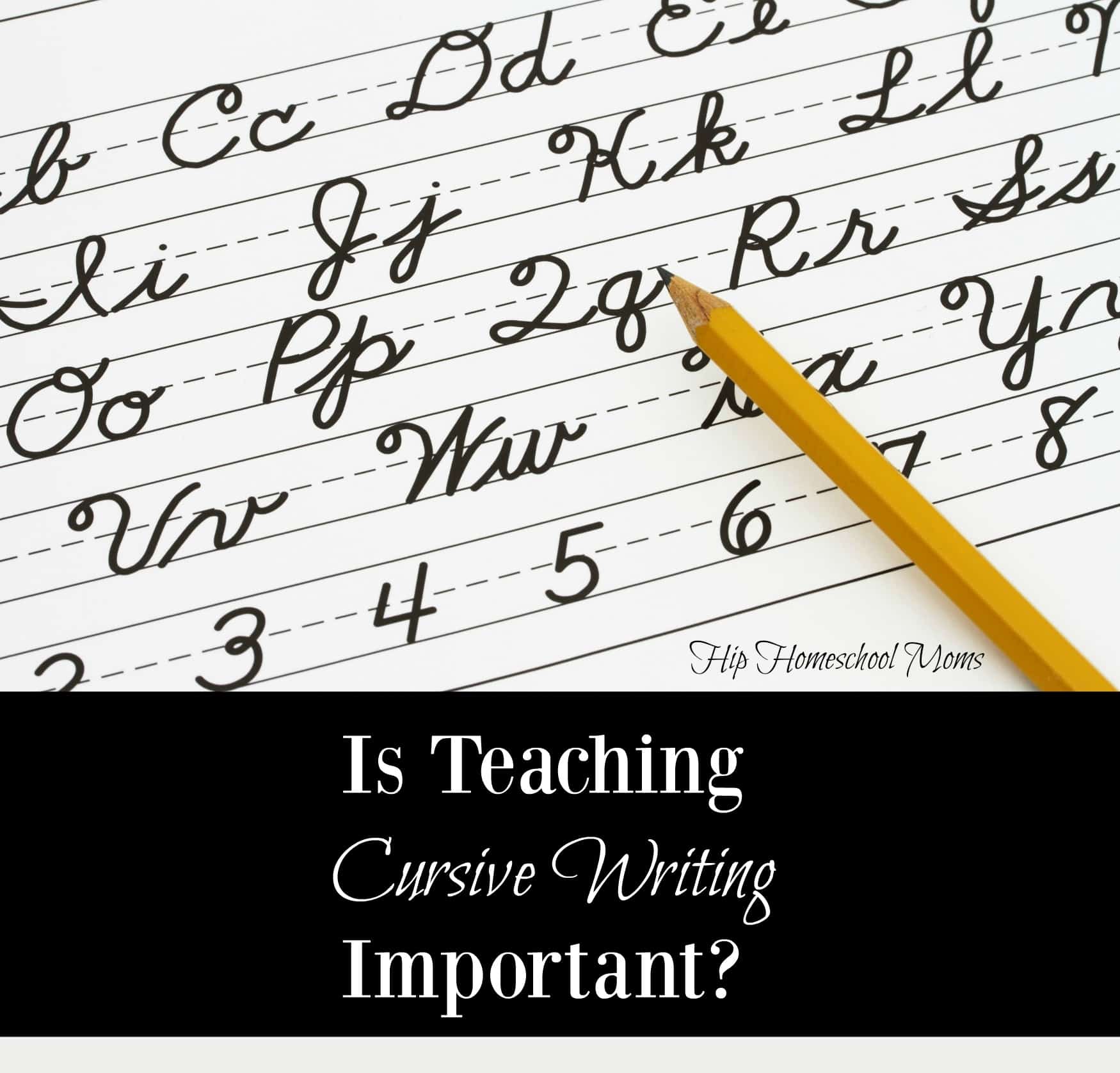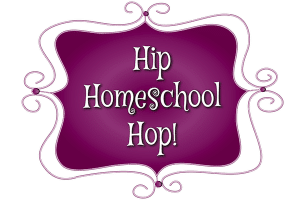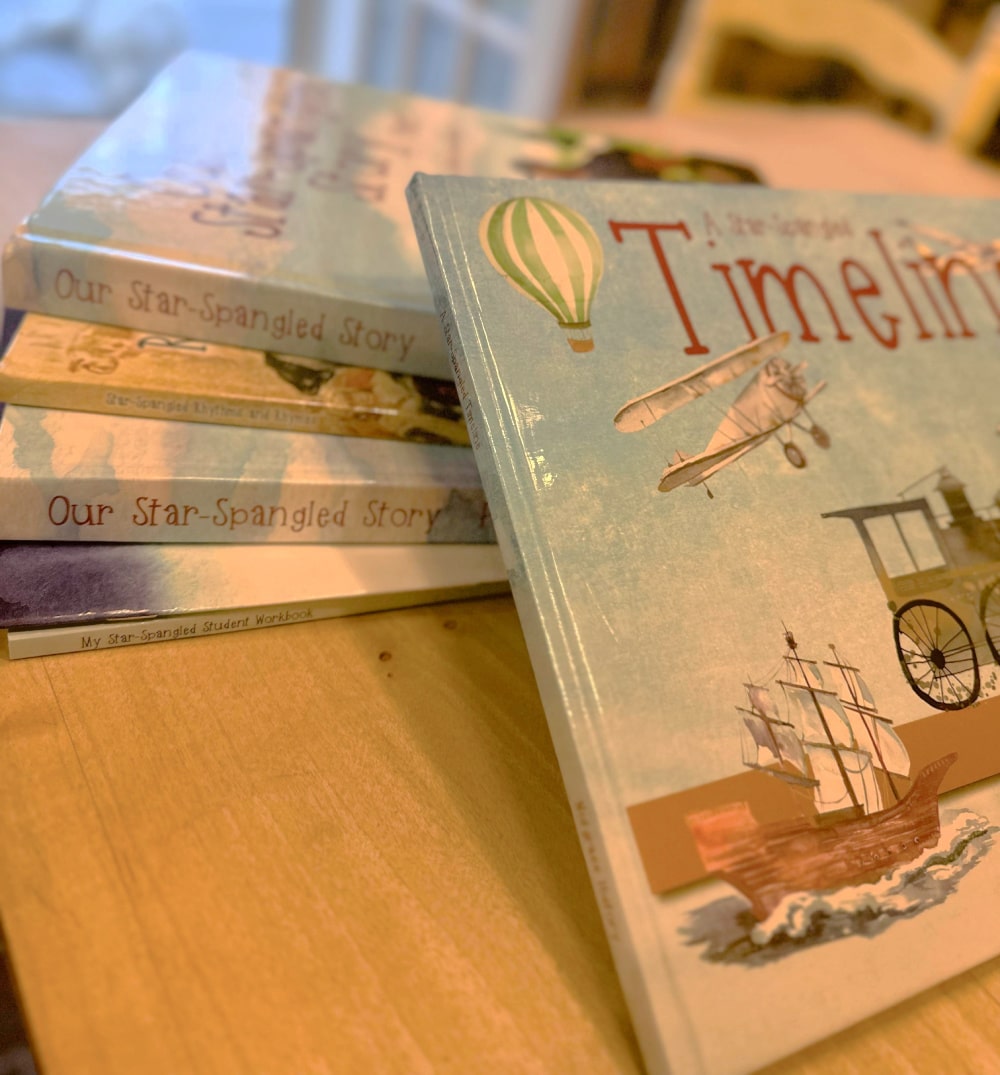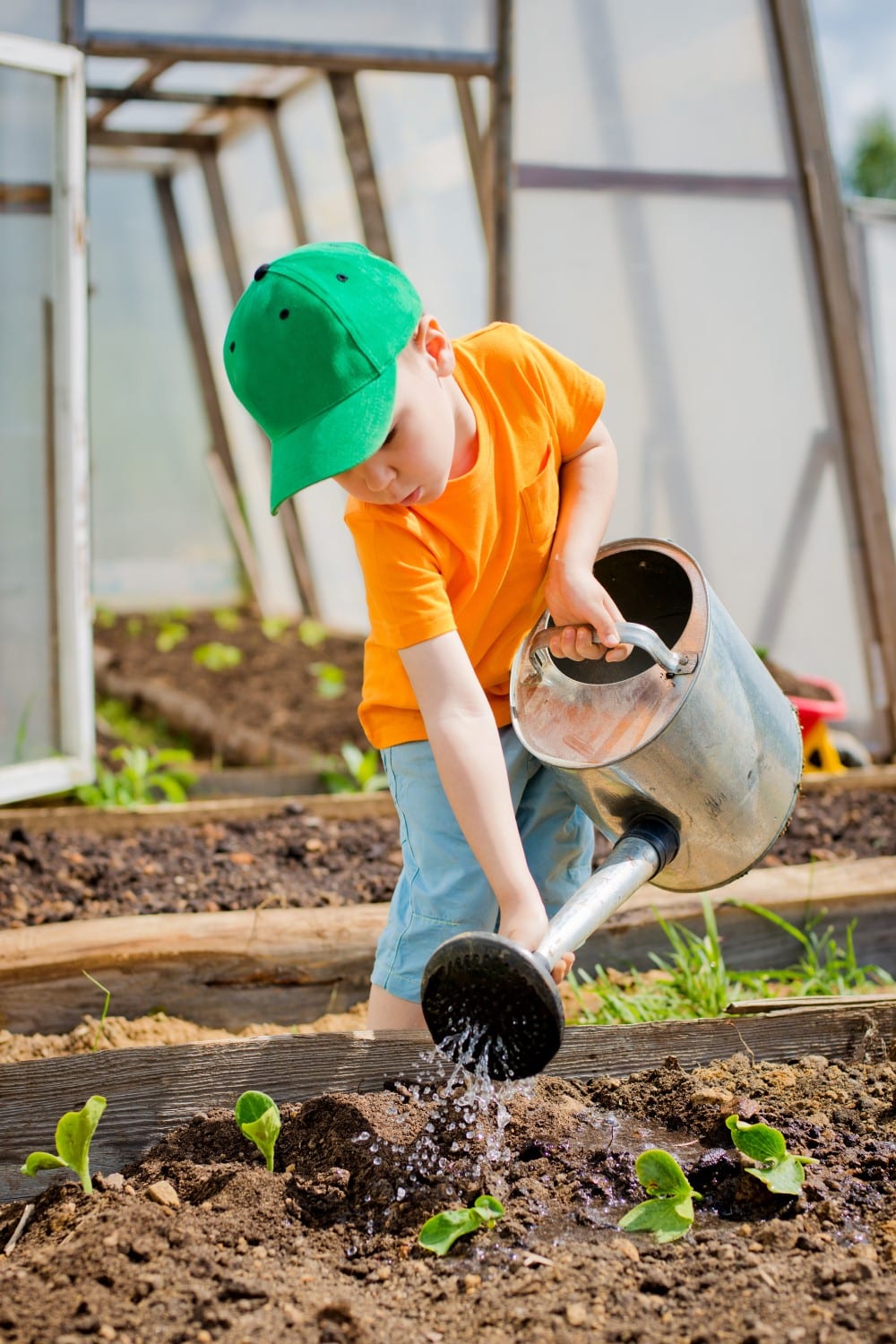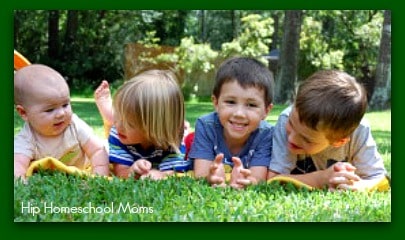To Homeschool Successfully, You Need Great Books
To homeschool successfully, you need great books!
Books are great for everybody! But for homeschoolers, books are a fantastic resource, and they are necessary for teaching and learning to occur. There are many reasons to make use of great literature, nature guides, picture books, books of poetry, and even instruction manuals, cookbooks, and other kinds of books we don’t typically think about using as part of our homeschools.
There are two more articles in this series. We hope you enjoy them and find them helpful! To find out how hands-on activities can help you homeschool successfully, click this link. And to find out how to use technology in your homeschool, click this link.

Before the last section of this article (about where to find great books), you’ll see an interview of our friend Pam Barnhill. In the video, Pam talks about how and where to find great books, why books are important to your homeschool, ways to use books in your homeschool, and more!
Books give us shared experiences.
Books allow us to learn with our children and give us the chance to enjoy a shared experience even if we never leave the house. Can’t visit the Grand Canyon with your children? Read a book about someone who went on a Grand Canyon adventure or someone who helped explore the area years ago. Do you have a child who enjoys writing stories? Read a book about a famous author and how he or she got started writing books and about how that person lived and worked. There are books on so many topics and about so many people! You may just find that there are topics you and your children are interested in that you never would have discovered if you hadn’t had these shared experiences through books!
Even books like nature guides can give us shared experiences! How? Grab a nature guide that contains information about plants and animals in your area. Then take a nature walk (in your yard, at a local park, etc.) and see how many of the plants and animals you can spot together. You can extend this activity by looking up more information about them together when you get home. Then create a nature journal with photos or drawings. This can lead to hours of time learning, exploring, and creating with your children!
What about cookbooks? These can be easy to incorporate into your homeschool! Are you studying a country, culture, or region of the United States? Grab a cookbook (or borrow one from the library or find a relevant one on Amazon) and try out a recipe or two that relates to the area or culture you’re studying. This is a really fun way to learn more and to spend time reading and sharing experiences with your children. My family and I have been on mission trips to Peru for the last 5 years, and we’re about to start collecting (from some of the people we met and worked with while we were there) recipes from some of the areas we visited. We’re so excited about making the recipes for friends and family members here at home! Not only will that give us the chance to remember when we ate these dishes while we were in Peru, but it will also give us the chance to share our memories and experiences with friends and family members who weren’t there with us.
Even books such as instruction manuals can give us shared experiences with our kiddos! When my son (who is now an adult) was younger, he loved Legos. We spent hours and hours putting Legos together! When he was a young child and needed help, these instruction manuals and the time we spent reading them and creating the Lego structures together gave us lots (and lots!) of shared time and experiences. As he got older and didn’t want or need help putting his creations together, he still enjoyed sharing his creations with me while he was working on them and once he’d completed them.
Books give us information about our children’s viewpoints.
As we read books together, we are given the chance to learn about our children’s ideas about the world and how they see it. Sometimes it can be hard to ask our children their ideas about life and the world. Our children may feel uncomfortable answering such direct questions. But by reading books together and discussing the situations and experiences of the characters in the books, we can learn a lot about how our children see the world and about their opinions and ideas. This is a non-threatening way to have discussions on important topics without making your children feel like you’re pumping them for information.
We can use classic literature, poetry, and even picture books for this purpose! Read the book or poem together, discuss it, and see what topics naturally come up. Or you may want to use a study guide as a jumping off point. These guides often suggest questions and topics of discussion that not only provide great talking points but also lead to more in-depth discussions with your children.
Books allow us to teach through discussions instead of lectures.
How many times have you lectured your child about something and afterward thought, “That was great! I’m sure I changed my child’s opinion on that topic,”? Probably never. But presenting lessons through characters (or even real people) in books is a wonderful way to teach a moral or lesson without directing it at your child. I can tell you from experience that these lessons do stay with your children even if you don’t think so at the time!
Discussing books, information, and ideas is a great way to review and assess your children’s knowledge.
I (Wendy) have two homeschool graduates and a high school senior. My oldest child is autistic and non-verbal, so I didn’t have back-and-forth discussions with her. I did (and still do) have discussions with my other two children, though. I found that discussions were a way of checking to see what my children understood and retained without having to give them a test or write an essay.
Yes, it is important for high school students to learn to take tests if they plan to go to college. Yes, our children need to learn to write well and make themselves understood through the written word. But it’s not necessary to give our children written tests and essays every single time we want to review information with them or assess their knowledge. Discussing what they’ve read and learned is another great way to do these things! And, to be honest, it can sometimes be an even more effective way of finding out exactly how much they truly understand!
What about curriculum?
Books may be used as curriculum for your homeschool. Or you may choose to use online curriculum. Even most online curriculum includes books for students to read, though. Unit studies also rely on books. In fact, it’s likely that no matter what curriculum you use, books will be a major part of your curriculum. And regardless of what curriculum you use, books are a wonderful way to supplement what your children are learning, share experiences with them, and learn more about the knowledge and ideas your children possess. If you want to start homeschooling but you’re not sure how to go about it, take a look at our “Where to Start” section on the Hip Homeschool Moms site! You’ll find information for finding out about the homeschool laws, choosing curriculum, unschooling or deschooling if you’re bringing a child home from public school, and more!
Where can you find the books you need?
There are many places you can find the books you need for your homeschool!
- Library: Most of us have access to a public library. Some may be part of a homeschool support group or co-op that has a homeschool library. It makes sense to make use a library if you have access to one since you can request and use the books you need and then return them without having to spend money to buy books.
- Facebook groups: There are lots and lots of Facebook groups where you can buy used books. Hip Homeschool Moms has a used curriculum group called Used Curriculum and More Hip Homeschool Moms. In that group, you can find used books and other used curriculum. There are lots of other Facebook groups where you can find used books and used curriculum.
- E-readers: Sometimes (but not always, so be careful!) you can find good deals on ebooks. I have a Kindle app and a Kindle device, and I’ve signed up for emails that let me know when there are ebooks on sale. Sometimes I get great deals on books that are deeply discounted. Other times, the ebooks are the same cost (or close to the same cost) as the physical books, so you’ll need to be careful if you’re looking for discounted books.
- Websites for used books: One of the sites I personally like for discounted books is the Thriftbooks site. This is a large web-based used bookseller that sells used books, DVDs, CDs, VHS tapes, video games, and audio cassettes. There are lots of sites, though, where you can get good used books. It’s worth taking a few minutes to look for them.
- Other websites: There are other websites like Amazon where you can look for books (and even used books).
- Friends and family: I love to swap books with friends and family members! Sometimes I have friends who are using the same curriculum I’m using (but we aren’t often on exactly the same lessons at the same time), so we swap books back and forth. And sometimes we have grandparents give books as gifts for birthdays or holidays.
Do you have some great suggestions for finding books for your homeschool? We would love to hear about them so we can add them to our list! Please leave a comment telling us your favorite places to find books for your homeschool.



